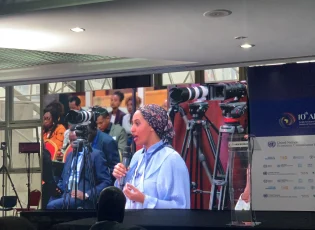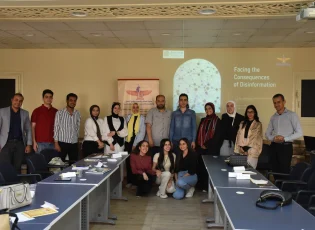In the framework of its interest in supporting decentralization and good local governance, Maat for Peace, Development and Human rights held its 3rd workshop in the series of "Decentralization and Public Services" during 12/13 of December 2012.
The workshop focused on the social services' issues and their relation with decentralization through discussing the services provided by the social services sector, ration services and subsidies along with the role of NGOs in supporting decentralization.
This comes in the framework of the program "Responsive Decentralization for Citizens' Rights" implemented by Maat in cooperation with Hanns Seidel Stiftung, the program seeks to improve the local administration's performance in Egypt through building capacity of social actors along with advocating decentralization.
23 experts in the social affairs sector, support services, the Ministry of Supply and NGOs participated in the workshop which aimed to identify the officials and concerned perspectives' concerning the role of decentralization in improving those services, identifying the obstacles before implementing decentralization within those services along with overviews to overcome those obstacles.
The workshop presented three policy briefs; the first by Mr. Essam El-Deen Borham, Undersecretary of the Ministry of Social Affairs in Cairo entitled "the Services provided by the Ministry of Social Affairs and the Advantages of Implementing Decentralization",
Mr. Ayman Okeil, Cassation Lawyer and Human Rights Activist prepared and presented the 2nd policy brief entitled "the Role of NGOs in Supporting Decentralization", the 3rd policy brief entitled "Support and Decentralization Applied on Supported Bread" was presented by Dr. Hassan Salama, Assistant Professor of Political Arts at the National Center for Social and Criminological Research.
The workshop also included specialized working groups to discuss the policy briefs and come up with specific recommendations concerning distributing authorities between the centralized and local components in each sector along with determining the laws and legislations needing amendments in order to become more supportive of decentralization in this particular sector.
The workshop recommendations included the significance of shifting the authority to distribute the support services supervised by the Ministry of Supply and the subsidies provided by the Ministry of Social Affairs completely to the local level considering the fact that the centralized level should be competent in public policy development, the necessity to provide sufficient financial resources to the local level for the expected expenditures along with activating the elected local councils and their oversight on the support distributing system on the local level. Concerning the role of NGOs in supporting decentralization, the workshop recommended the necessity to change the restrictive law no. 84 of 2002 for the NGOs' work to facilitate the NGOs' task in monitoring the public authorities and linking between them and the citizen, as well as the necessity for those NGOs to play a central role in raising the awareness on the constitutional and legislative frameworks for the local administration along with supporting the integrity of local councils' elections.











